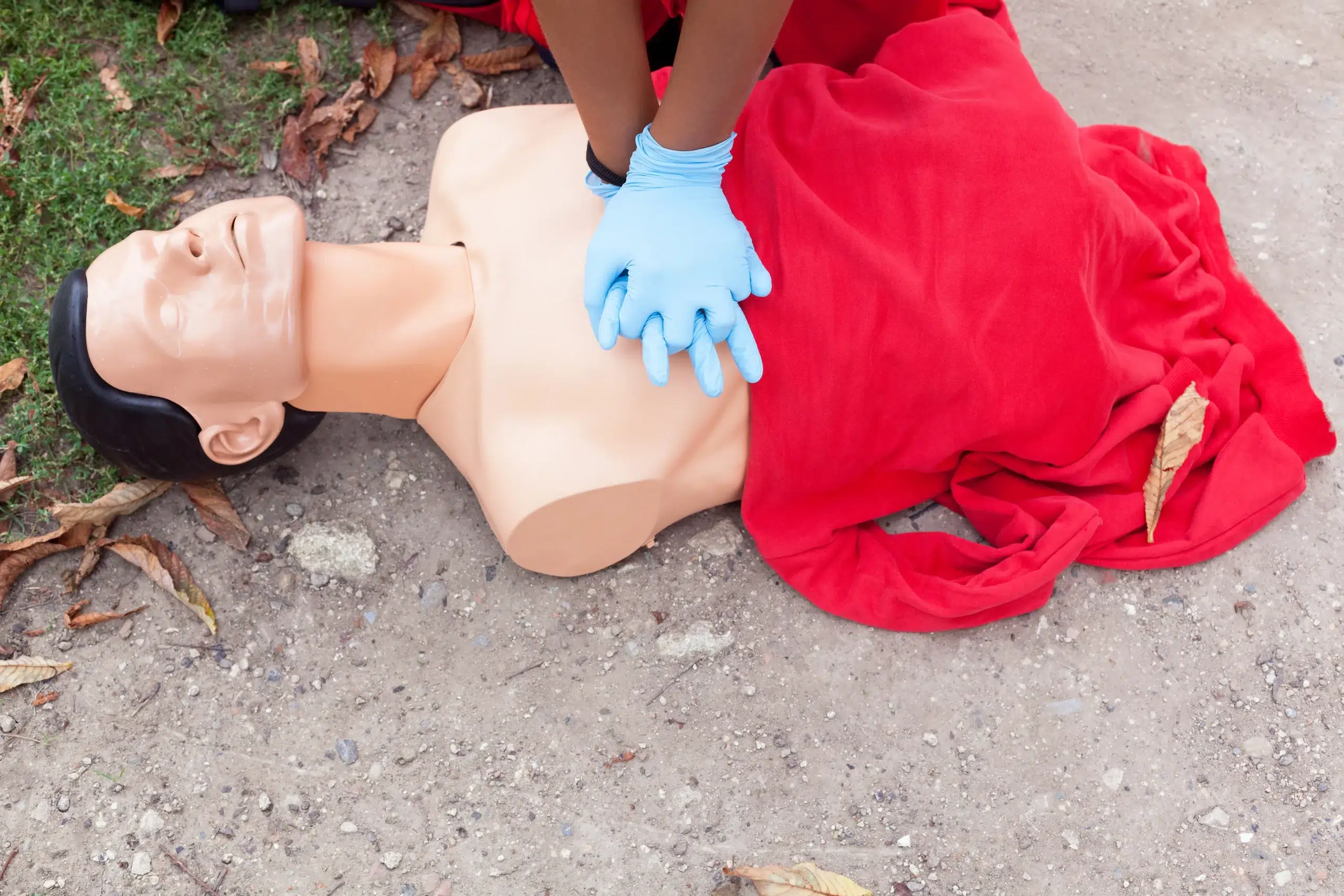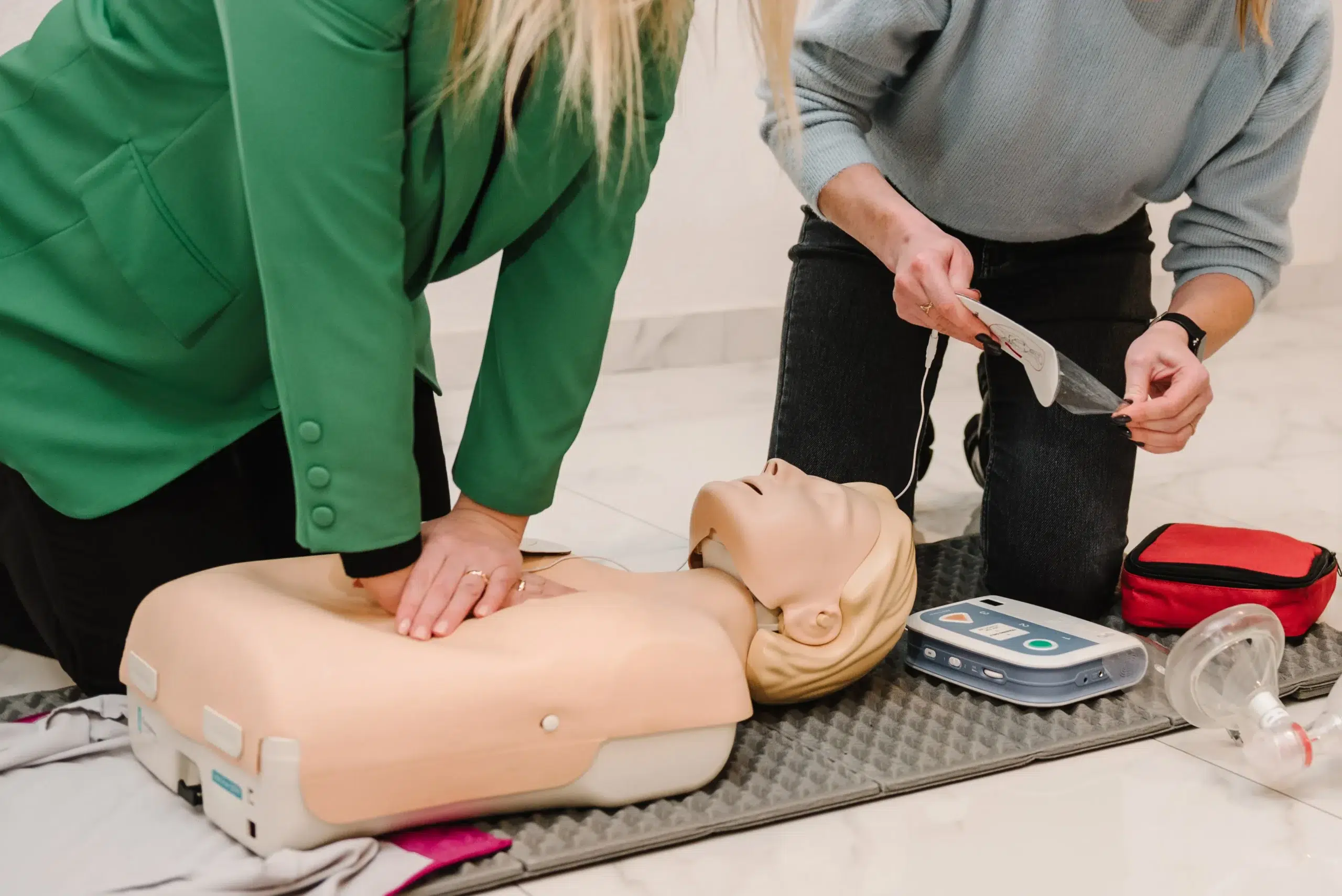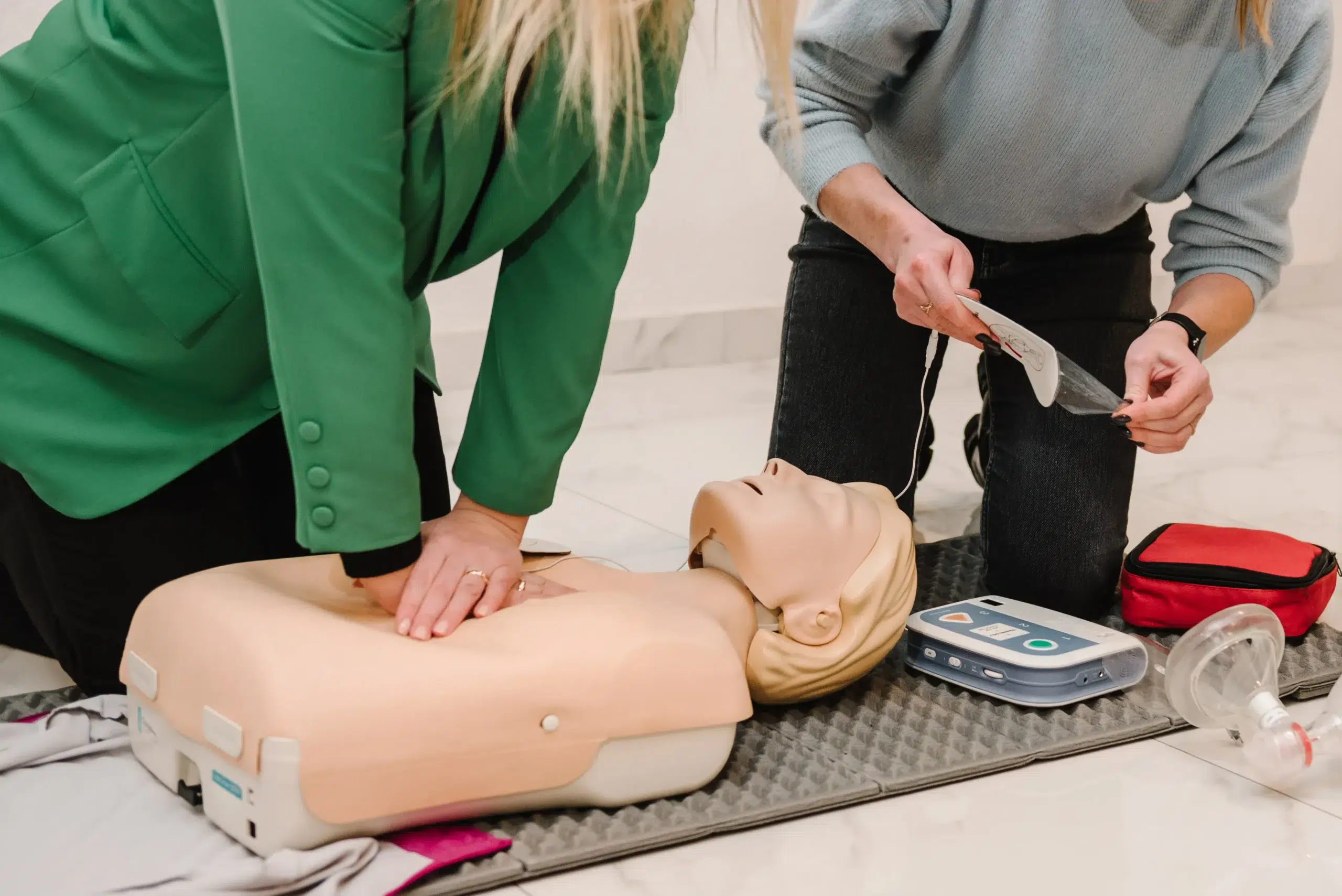Working in healthcare often means facing unexpected challenges, especially when caring for young patients. Pediatric Advanced Life Support (PALS) equips you with the tools and confidence to respond effectively in pediatric emergencies. This post explores the importance of PALS certification and provides valuable insights into finding quality training for pediatric advanced life support in Orangevale. We’ll cover everything from course requirements and costs to effective study strategies and the long-term benefits of PALS certification. Let’s dive in and empower you to provide the best possible care for your young patients.
Key Takeaways
- PALS equips you with essential skills: This specialized training goes beyond basic CPR, giving you the tools to confidently handle pediatric emergencies. Find a course format—in-person, blended, or online—that works best for you.
- Choose your PALS course wisely: AHA accreditation ensures your training meets the highest standards. Consider practical factors like location, schedule, and instructor experience when selecting a course.
- Prepare to succeed: Consistent study, active participation in simulations, and practice questions are key. Plan for recertification to maintain your skills and knowledge.
What is Pediatric Advanced Life Support (PALS)?
What is PALS?
Pediatric Advanced Life Support (PALS) is specialized training designed to equip healthcare providers with the skills to respond to life-threatening emergencies in infants and children. It focuses on a systematic approach to pediatric assessment, basic life support, PALS algorithms, and effective resuscitation. This training goes beyond basic CPR and emphasizes critical thinking and rapid intervention to improve outcomes in pediatric emergencies.
Who Needs PALS Certification?
PALS certification is essential for healthcare professionals responsible for the initial care and stabilization of critically ill infants and children. This includes physicians, nurses, paramedics, respiratory therapists, and other providers working in emergency departments, intensive care units, and acute care settings. If your work involves direct patient care and the potential for pediatric emergencies, Spectrum Health offers more information on who needs PALS certification.
Benefits of PALS Training
PALS training offers several key benefits for healthcare providers and their young patients. The program emphasizes a team-based approach, fostering communication and coordination during emergencies. Participants learn to recognize and manage respiratory distress, shock, and cardiac arrest in children. Children’s Health explains how PALS prepares providers to intervene in these situations. Beyond technical skills, PALS training explores the physiological differences between children and adults, allowing providers to tailor their care. This specialized knowledge is crucial for providing excellent care and improving outcomes. Comfikare CPR further discusses how PALS training addresses the unique health complications and physiology of children.
Find Top PALS Providers in Orangevale
Finding the right Pediatric Advanced Life Support (PALS) course is crucial for healthcare providers working with children. Here are some places to explore PALS certification options in and around Orangevale:
Citrus Heights CPR Classes
Citrus Heights CPR Classes offers a convenient location for PALS certification courses. They provide comprehensive training designed to equip healthcare professionals with the skills to respond effectively to pediatric emergencies. Their focus on practical application and adherence to the latest American Heart Association guidelines makes them a strong option. Check their website for upcoming course dates and registration information.
American Heart Association Training Centers
The American Heart Association (AHA) sets the standard for PALS training. You can find AHA-authorized training centers on their website, searchable by location and course type. This ensures you receive high-quality instruction that meets national standards. Many hospitals and healthcare systems also offer AHA-approved PALS courses.
CME Associates
CME Associates provides PALS training in various locations, some accessible to Orangevale residents. They offer a range of courses for healthcare professionals. Visit their website for course schedules and locations.
Cascade Training Center
Cascade Training Center focuses on evidence-based PALS training aligned with the latest AHA guidelines. Their emphasis on practical skills and BLS proficiency ensures participants are prepared for pediatric emergencies. Explore their website to learn about their PALS courses.
Local Hospitals and Medical Centers
Many hospitals and medical centers near Orangevale offer PALS certification. Contact local hospitals directly to inquire about PALS training opportunities. This can be a valuable way to learn from experienced professionals in a clinical setting.
PALS Course Details & Requirements
Before you jump into a Pediatric Advanced Life Support (PALS) course, it’s helpful to understand the requirements and different learning options. This way, you can choose the best fit for your schedule and learning style.
Prerequisites
One key requirement for PALS certification is a solid understanding of basic pediatric life support (BLS). Think of BLS as the foundation for the more advanced skills you’ll learn in PALS. A current BLS certification ensures you’re ready to tackle the complex material covered in a PALS course.
Course Formats & Duration
PALS courses recognize that people learn in different ways. That’s why various formats are available, each designed to maximize your learning experience.
In-Person Courses
Traditional in-person PALS courses offer a structured environment with hands-on practice and direct interaction with instructors. This format allows for immediate feedback and personalized guidance as you develop your skills.
Blended Learning
For a more flexible approach, blended learning combines online modules with in-person skills sessions. This allows you to study the theoretical parts of PALS at your own pace and then demonstrate your skills in a practical setting. The American Red Cross offers this blended learning style.
Online Components
Some PALS courses, like the HeartCode PALS program, incorporate online learning to enhance the educational experience. These online components often include interactive simulations and self-directed modules, allowing you to learn and practice key concepts before attending an in-person skills session.
Certification Process & Validity
Once you’ve successfully completed both the online and in-person components of your chosen PALS course, you’ll receive your PALS certification. This certification is typically valid for two years. To stay current with the latest guidelines and maintain your credentials, you’ll need to recertify. This ensures you’re always prepared to provide high-quality care in pediatric emergencies.
PALS Certification: Cost & Value
Average Pricing in Orangevale
In Orangevale, PALS certification typically costs around $250 for initial certification, while renewals are often around $125. This is generally in line with standard PALS certification rates, making this essential training accessible. For the most current pricing, check directly with your chosen provider, such as Citrus Heights CPR Classes, to confirm their rates.
Discounts & Promotions
Group Rates
Coordinating training for a group of healthcare providers? Ask about group discounts. Many providers, including Citrus Heights CPR Classes, offer significant savings—sometimes up to 35%—based on the number of participants. This can make training more affordable for your organization.
Returning Student Discounts
If you’re already certified in another area and want to add PALS to your qualifications, look for returning student discounts. Some training centers offer discounts, such as 15% off, for students taking additional courses. This makes expanding your skills and staying up-to-date more budget-friendly.
Return on Investment
Think of PALS certification as a valuable investment in your career and the well-being of your patients. This training gives you the skills to handle pediatric emergencies confidently, leading to better patient outcomes and a higher quality of care. The ability to respond effectively in critical situations is priceless, providing both peace of mind and the potential to save lives. For a deeper understanding of the challenges and benefits of PALS certification, explore resources like this article on common challenges in PALS certification.
Choose the Right PALS Course in Orangevale
Finding the right PALS course can feel overwhelming, but focusing on a few key factors simplifies the process. This section breaks down what to look for when choosing a PALS course in Orangevale.
Factors to Consider
Pediatric Advanced Life Support (PALS) certification is essential for healthcare providers treating children. Ask yourself some practical questions before committing to a course. Where is the training facility located, and does the schedule work for you? What’s the course length and cost? What learning environment helps you thrive—a smaller, hands-on class or a larger lecture setting? Considering these factors upfront helps you find the best fit.
Compare Course Options
PALS courses aren’t one-size-fits-all. The PALS provider course prepares healthcare providers to manage pediatric emergencies. Consider factors like the curriculum, format (in-person versus online or blended learning), and overall course length. Some courses offer flexible scheduling, such as evening or weekend classes, which may be helpful. Citrus Heights CPR Classes offers various scheduling options and course formats. See our course schedule for more information.
AHA Accreditation: Why It Matters
Look for an American Heart Association accredited PALS course. AHA accreditation signifies the course meets the highest standards for pediatric care, ensuring the curriculum is current and covers the latest guidelines and best practices. This is crucial for providing safe and effective care. Citrus Heights CPR Classes offers AHA-accredited PALS courses, ensuring quality training. Learn more about our AHA-compliant BLS course.
Evaluate Instructor Qualifications
An instructor’s experience and teaching style significantly impact your learning. Choose a course led by certified instructors with a strong background in pediatric advanced life support. Look for engaging and supportive instructors who foster a positive learning environment. Don’t hesitate to ask about an instructor’s experience and qualifications before enrolling. Reading reviews or testimonials from past students can also offer insights into their teaching style. At Citrus Heights CPR Classes, our instructors are experienced healthcare professionals passionate about teaching PALS. Contact us to learn more about our instructors and their qualifications.
Prepare for PALS Certification Success
So, you’re ready to pursue your PALS certification—fantastic! Preparing effectively can make a real difference in your confidence going into the exam and your ability to recall information quickly in real-world scenarios. Here’s how to set yourself up for success:
Study Effectively
PALS courses are designed to be comprehensive and engaging. They often incorporate case studies and practice questions to reinforce learning. Take advantage of these opportunities! Working through practice questions and scenarios can be excellent preparation for the PALS exam. Don’t wait until the last minute to start studying. Consistent review throughout the course will help you retain the information more effectively. Consider creating a study schedule that works for you and stick to it as much as possible.
Overcome Challenges
One common hurdle for healthcare providers is finding the time to commit to PALS training amidst demanding work schedules. Consider exploring blended learning options that combine online modules with in-person skills sessions. Citrus Heights CPR Classes offers this flexible approach, making it easier to fit the training into your busy life. Talk to your employer about scheduling options or explore local courses offered on weekends or evenings.
Practice Questions & Simulations
PALS certification classes emphasize simulations and real-life scenarios. This hands-on approach helps providers develop the confidence to apply their pediatric-specific skills in actual emergencies. Actively participate in these simulations and ask questions. The more you practice, the more comfortable you’ll become. Consider forming study groups with classmates to practice scenarios together and share different perspectives.
Maintain Your Certification
Your PALS certification is valid for two years. To maintain your credentials, you’ll need to recertify. Plan for recertification in advance and explore options for renewal courses. Some providers offer convenient online PALS recertification, making it easier to stay current. Check with your certifying organization, such as the American Heart Association, for specific requirements and renewal options. Set reminders for yourself so you don’t let your certification lapse.
Continuing Education
Staying up-to-date on the latest pediatric advanced life support guidelines is crucial for providing the best possible care. Take advantage of continuing education resources, such as online courses, webinars, and journal articles. Health Ed Solutions offers resources for staying informed about current best practices in pediatric care. Continuous learning will not only help you maintain your certification but also enhance your skills and knowledge throughout your career. Consider joining professional organizations to stay connected with the latest advancements in the field.
Related Articles
- Pediatric Advanced Life Support (PALS) Sacramento – Citrus Heights CPR Classes
- PALS Training in Citrus Heights: A Comprehensive Guide
- AHA PALS Classes in Citrus Heights, CA – Citrus Heights CPR Classes
- CPR Training in Orangevale: Your Complete Guide – Citrus Heights CPR Classes
- BLS Courses in Orangevale: Your Complete Guide – Citrus Heights CPR Classes
Frequently Asked Questions
Why is PALS certification important?
PALS certification equips healthcare providers with specialized knowledge and skills to effectively manage life-threatening emergencies in infants and children. It goes beyond basic life support to emphasize critical thinking, rapid intervention, and a team-based approach, ultimately improving outcomes in pediatric emergencies. It’s crucial for those working in settings where pediatric emergencies are possible.
What are the different PALS course formats available?
PALS courses are offered in various formats to accommodate different learning styles and schedules. Traditional in-person classes provide a structured learning environment with hands-on practice and direct interaction with instructors. Blended learning combines online modules with in-person skills sessions for greater flexibility. Some courses also incorporate online components like interactive simulations and self-directed modules to enhance the learning experience.
How much does PALS certification cost, and are there any discounts?
The cost of PALS certification varies but typically falls around $250 for initial certification and $125 for renewals. Many training centers offer discounts for groups, returning students, or other special promotions. Contacting your chosen provider directly is the best way to get the most up-to-date pricing information and inquire about potential discounts.
How can I prepare effectively for the PALS certification exam?
Successful PALS certification requires consistent study and practice. Take advantage of practice questions, case studies, and simulations offered in the course. Creating a study schedule, forming study groups, and actively participating in simulations can significantly improve your understanding and confidence. Don’t wait until the last minute to start studying – consistent review throughout the course is key.
How do I maintain my PALS certification once I’ve earned it?
PALS certification is typically valid for two years. To maintain your credentials, you’ll need to recertify before the expiration date. Check with your certifying organization for specific recertification requirements and available options. Many providers offer renewal courses, sometimes even online, to make the process more convenient. Setting reminders and planning can help you stay on track with your recertification needs.








